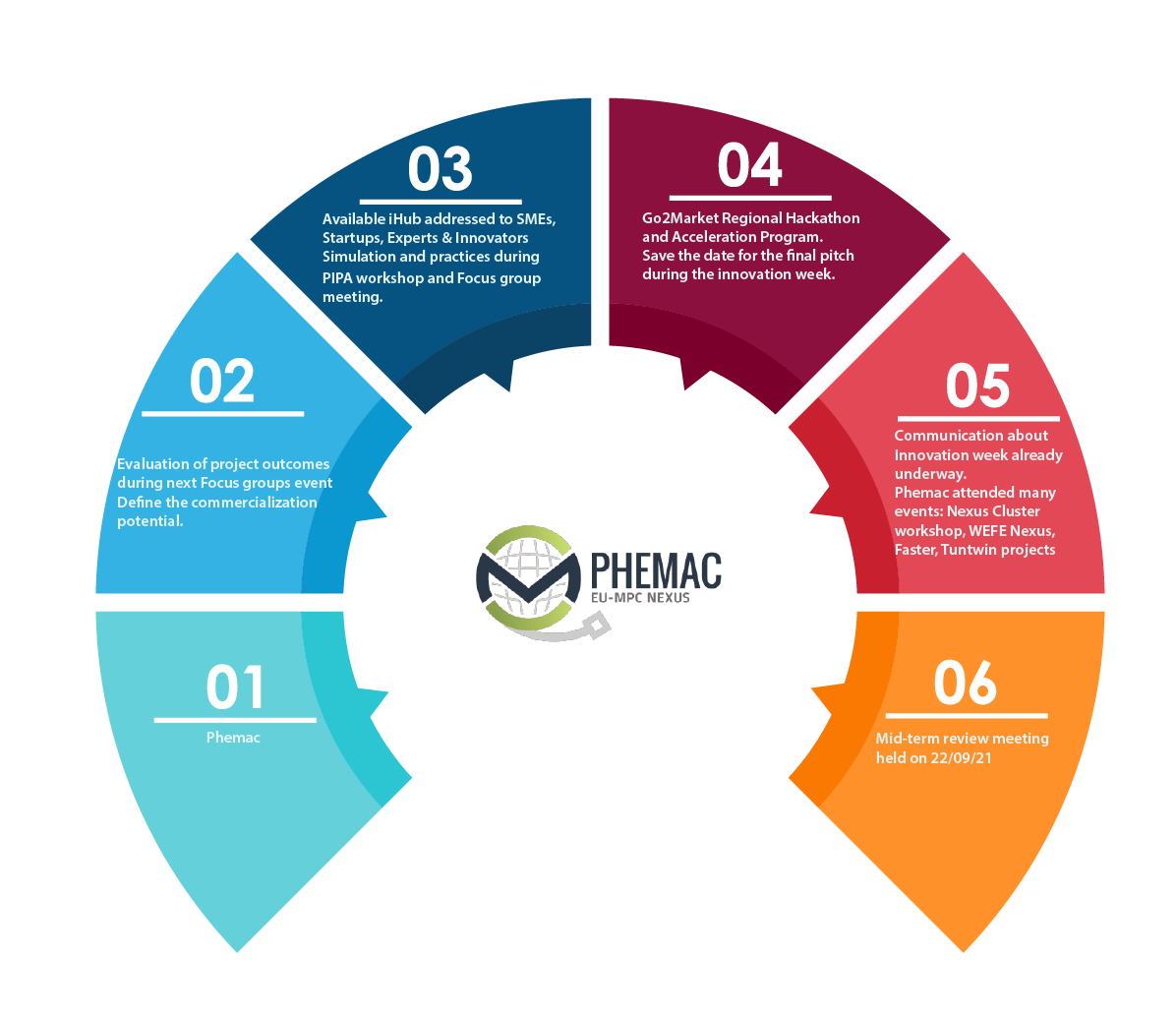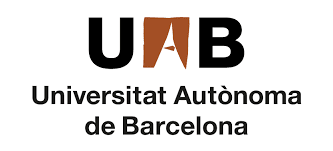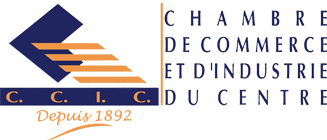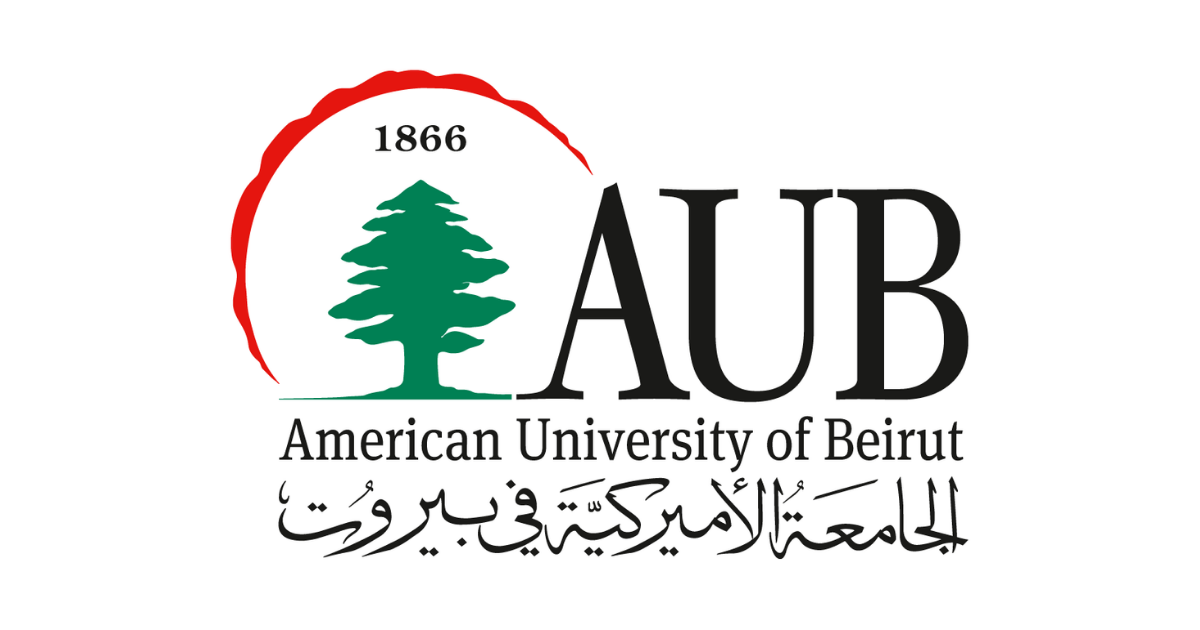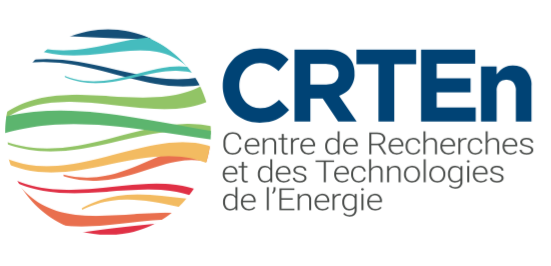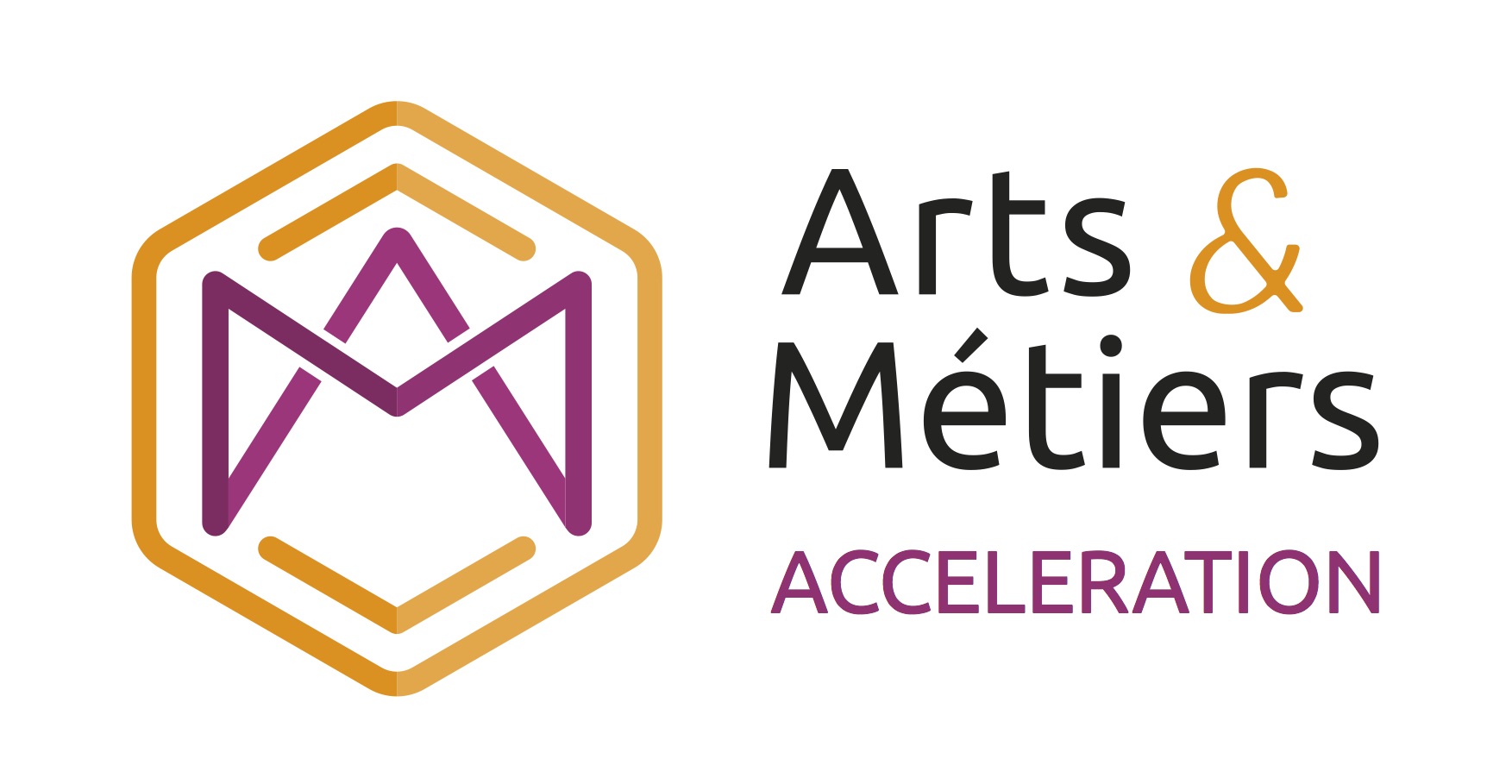
PHEMAC Newsletter Goals
The PHEMAC newsletter has been designed and aims at promoting the project’s results to interested users, It has multi-fold objectives:
- Inform on recent and future PHEMAC activities and events,
- Summarize ongoing activities,
- Provide links to detailed material on specific subjects,
- Foster liaison with other related projects,
- Disseminate and advertise the project’s results,
- Announce significant events (e.g. conferences) related to PRIMA SRIA priorities and WEF fields
About PHEMAC
PHEMAC aims to develop and disseminate an interactive platform that will gather and share best practices focused on PRIMA SRIA priorities, involving a wide range of stakeholders from the farming system, water management and agri-food sectors.
December 2021
|
|
PHEMAC NEWS
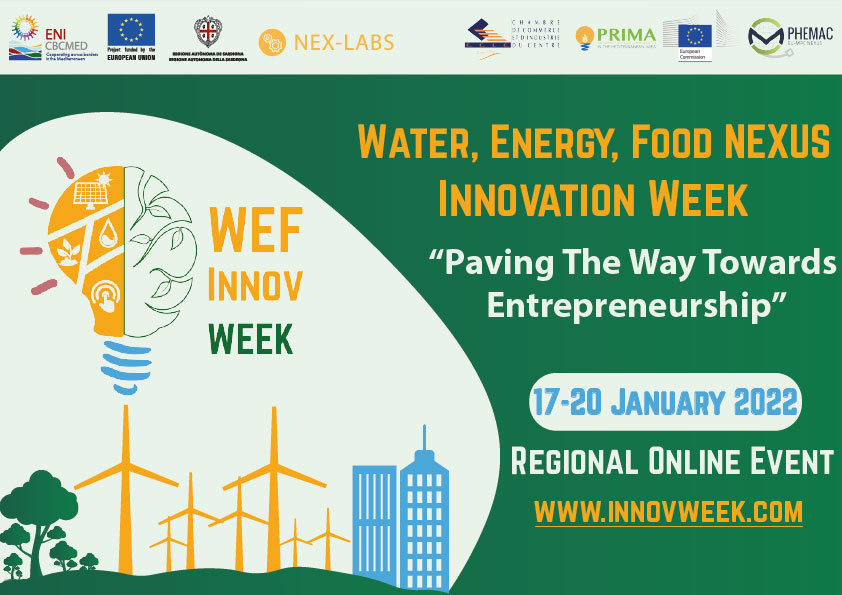
Registrations now open for the joint NEX-LABS and PHEMAC Water, Energy, Food NEXUS Virtual Innovation Week; Paving the way towards Entrepreneurship
From 17 to 20 January 2022
From 17 to 20 January 2022, the joint NEX-LABS and PHEMAC innovation week will bring together Euro-Mediterranean researchers, policy makers, investors, Industry players, Academia, Technology Transfer Offices, SMEs, startups and Entrepreneurs. The event will provide participants with unique opportunities to know more about Water, Energy and Food (WEF) NEXUS status and realities in Tunisia and the Euro-Mediterranean Region and to forge strategic partnerships across Europe and the Middle East and North Africa (MENA) region.

The PHEMAC iHub now live
Conceived as a tool to stimulate visibility and re-use of results, the iHub is a central component of the PHEMAC project which collects and disseminates information about projects funded by various agencies that publicly share their data.
This knowledge-based platform is composed by 4 main elements designed to enhance cross-fertilization of different territorial experiences and multidisciplinary collaboration:
Discover the NEXUS Water Energy and Agri-Food best practices in the European and Mediterranean Partner Countries, take your tour in the iHub now!
For questions or further information, contact us at phemacproject@gmail.com

The Go2Market Regional Hackathon and Acceleration Program
This program is organized by Berytech under the PHEMAC project, enabling researchers to validate their innovation in the market, further strengthen their know-how and define their go-to-market strategy tapping into the Mediterranean Food-Energy-Water Nexus sector. After an intensive 3-day Hackathon, eleven startups and/or projects pitched their ideas and only eight were selected to join the Go2Market Acceleration program, enabling these innovators and entrepreneurs to validate their ideas and develop their Go2Market strategy.

Capitalization plan progress: support and promotion
90 EU funded projects analysed; i.e. 41 projects are funded by European Union’s Horizon 2020 research and innovation programme whereas 49 projects are funded by ENI CBC MED programme co-financed by the European Commission. Each project was intensively studied to identify the intended innovation upon which the project is based. It has been noted that there is no direct linkage between commercialization channels and TRL due to several factors, yet its importance in evaluating the commercialization of technologies cannot be overlooked. However, this report managed to introduce best practices in the choice of commercialization channels in an attempt to link commercialization channels with TRL parameters.
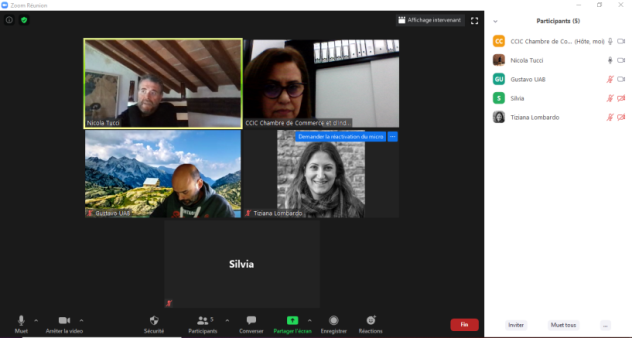
PHEMAC Editorial Board meetings
19/07/2021 – 30/08/21 – 11/10/21 – 22/11/21
The editorial board of the project has organized 4 virtual meetings on the 19 July, 30 august, 11 October and 22 November 2021 and discussed about:
UPCOMING EVENTS
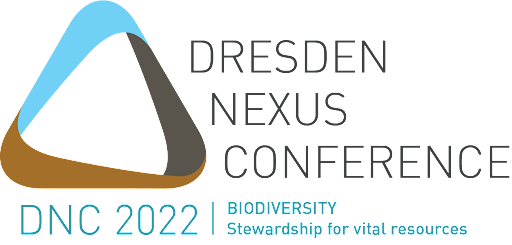
4th Dresden Nexus Conference (DNC)
23–25 May 2022
Under the theme “Biodiversity - stewardship for vital resources”, the fourth Dresden Nexus Conference (DNC) will take place on 23–25 May 2022. It is generally an online conference (sessions) with selected live and on-site elements and formats. The programme aims to explore research and practical examples of sustainable resource management in communities around the world and how these management strategies support the achievement of the SDGs. The DNC2022 focuses on strengthening biodiversity with other challenges in society (e.g., climate change, urban and regional development, agri-food and forest systems and circular economy). More Information >> (To be inserted, could you send us the link please) http://2022.dresden-nexus-conference.org/

Global Green Event by Pollutec Casablanca;
14 -17 September 2022 | Environmental Technology Fair
< https://globalgreen.ma/
Global Green Event by Pollutec - formerly Pollutec Maroc - is an international exhibition of environmental equipment, technologies and services. It will attract professionals and decision-makers from industry, construction, the service sector and local authorities seeking solutions to Morocco's environmental challenges. Pollutec Maroc presents solutions relating to water, waste and recycling, energy, air, risk management and sustainable development.
The Global Green Event by Pollutec will take place on 4 days from Wednesday, September 14. to Saturday, September 17. 2022 in Casablanca.

Seminar at Expo 2020 // Dutch water sector event: ‘Water, Energy & Food for Cities, Industries and Agriculture: Global challenges – integrated local solutions ;16 January 2022
https://www.netherlandswaterpartnership.com/news/dive-expo-2020-dubai
At the heart of the Dutch participation at Expo 2020 Dubai is the unique Netherlands Pavilion. The Netherlands Pavilion at Expo 2020 Dubai is the embodiment of the innovative and sustainable solutions the Netherlands can offer in the areas of water, energy and food and related fields.

Nature-based Solutions in a Changing Climate 2022 ; July 5 - 7, 2022 | Hybrid Event
https://www.naturebasedsolutionsoxford.org/home/
This event draws together the current state of the interdisciplinary evidence for the socioeconomic and ecological effectiveness of NbS, and explore the social, technical, ethical, ecological, governance and financial challenges around scaling them up. As well as highlighting avenues for further research, the conference aims to generate guidelines on the design and implementation of NbS targeting decision-makers in business and government. Outcomes will be synthesised in policy briefs, a special issue, and made available to a wide audience through a creative outreach campaign.
PHEMAC PARTNERS
|
|

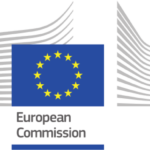
The PHEMAC project is co-funded under the PRIMA programme. An Art.185 initiative supported and funded under Horizon 2020, the European Union’s Framework Programme for Research and Innovation.
The contents of this Newsletter are the sole responsibility of the authors and can in no way taken to reflect the views of the European Union.
